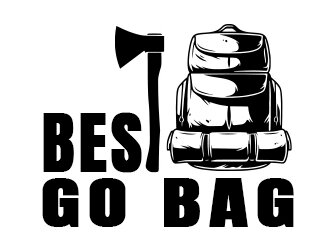A catchphrase we hear from the media these days is “food security.” It’s a measure of the availability of food and the ability to access it.
The United Nations Committee on World Food Security defines it this way. A person must have “physical, social and economic access to sufficient, safe and nutritious food that meets their food preferences and dietary needs for an active and healthy life.”
It’s estimated that 820 million people around the world face food insecurity. The problem is worse in many countries than here in the U.S.
But according to Feeding America, more than 42 million Americans suffer from hunger. One in seven goes to bed hungry every night.
Nip food shortages in the bud
Now, many of us are able to escape this plight because we have enough money to buy food. Maybe not a lot, but enough to feed ourselves and our families.
But what happens when droughts hit? Or when a disaster empties store shelves? Or when a pandemic disrupts the food supply chain?
Money doesn’t do us a whole lot of good when there’s not enough food to purchase. We’re just as hungry as folks who couldn’t afford food in the first place.
But there is something that will do us plenty of good. Something that will allow us to feed ourselves and our families indefinitely. And that’s a backyard survival garden.
Choosing which crops to grow
I think we’re all sold on the idea of having a garden where we can grow our own food. But what crops should we grow? There are many choices. Among your considerations should be the amount of calories and nutrition they will provide.
Today I want to give you what I believe are the top nine, must-have plants for most backyard gardens. You may want to grow more, but I wouldn’t neglect these nine.
Everyone will make different choices, depending on a variety of factors. Including personal tastes, the type of soil you’re working with, weather conditions and so forth.
But I don’t think most people could go wrong with these choices. And when we’re finished, feel free to tell me which other plants you’ve chosen for your garden.
The standards
Tomatoes might be the single most popular food to grow in backyard gardens. I don’t have to tell you how delicious they are, especially when fresh. You can eat them plain or cut them up and add them to salads and stews. They’re easy to grow and they ripen on the vine. Sun-dry them, freeze them or can them.
Carrots provide crunchiness and sweetness in every bite. A good source of fiber and antioxidants – plus minerals and nutrients for eye health – these bright orange vegetables can be used in any blend. They taste great raw or cooked, and are perfect for dipping and snacking. They’re simple to can, freeze and store.
Lettuce is the bedrock of salads. It’s the constant in just about every salad, and is part of many lunches and dinners. Because it contains so much water, it can help keep you hydrated. And its Vitamin K supports healthy bones. Especially as we age. It’s also a good source of fiber, iron, folate and Vitamin C.
Beets grow quickly and the plants can grow large, so give them plenty of room in your garden. They may end up weighing several pounds. Packed with vitamins, beets taste sweet and store well. The leaves can also be consumed, although some people consider them a little too biter.
Zucchini is an easy plant to grow and tastes delicious. There are a variety of ways to prepare its seeds, fruit and skins. They have deep root systems, so they can draw nutrients from deeper levels of soil than most. Even before your zucchinis are ready to pick, you can eat their leaves and flowers.
The alternatives
Those are the basics everyone is familiar with. Now I want to toss in a few items most people don’t normally consider. But they should, if only for medicinal purposes.
After all, a societal collapse could make medical care tough to come by. Staying healthy will become more important than ever.
Turmeric has been called “a medicine bottle in a single herb.” You’ll get iron, manganese, Vitamin B6, copper and zinc from turmeric. It has anti-inflammatory, anti-bacterial and anti-fungal properties. Consuming it with some kind of fat, such as olive oil, will help absorption and allow it to stay in your body longer.
Sunflower seeds make for a healthy snack. And they can be made into an oil to store in your freezer. But you can also eat nutrient-dense sunflower leaves and buds. Grind up the seeds and sprinkle them on salads and on toast with honey on top. The seeds contain selenium, a mineral vital to thyroid health.
Garlic takes up little space in your garden and can even be grown in small containers. It has been used to help avoid and treat infections for many years. It’s anti-viral, anti-fungal and anti-bacterial. Nutrient-dense garlic has been associated with helping control high blood pressure, asthma and diabetes.
Quinoa is one of the few plant-based foods that provides all the essential amino acids. It is rich in protein, dietary fiber, protein, magnesium and iron. It can be used as a substitute for wheat flour. Quinoa does deplete nitrogen from the soil, so make sure to replace that.
2 Victory Garden Seed Vaults for the price of one
Now, you could go out and search for the best tomato seeds, the best carrot seeds, the best lettuce seeds, etc.
And eventually you’ll probably find some good ones. Or, you could place one order from the comfort of your home and get a great variety of non-GMO seeds passed down from our forefathers.
And best of all, one-half of those seeds will be free. That’s right. For a limited time, you can get two Victory Garden Seed Vaults from 4Patriots for the price of one.
That means between approximately 15,000 to 20,000 seeds from five popular varieties (tomatoes, carrots, lettuce, beets and zucchini). For one low price.
That’s enough to grow thousands of pounds of fresh produce. And you can plant the seeds from your crops next year, so you never have to buy seeds again.

